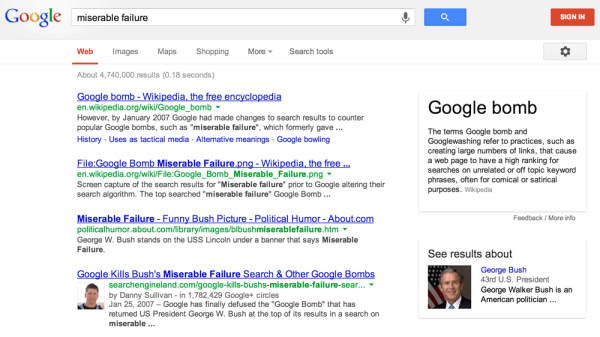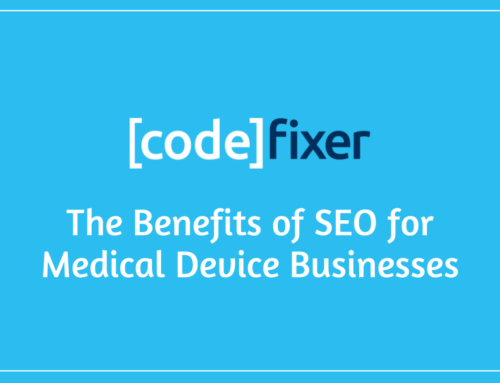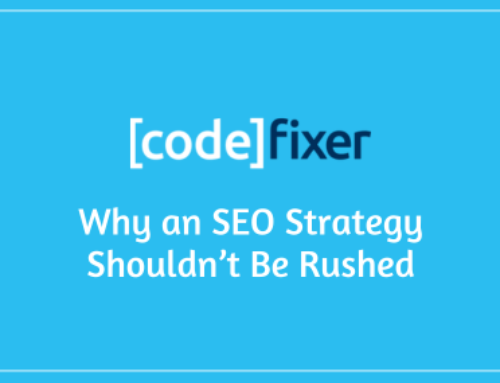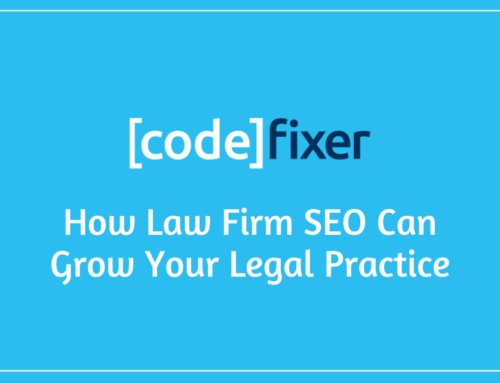Those who are new to Search Engine Optimisation may assume that SEO is about the strategic use of keywords to help guide web users to their content. – And they’d be right!
Keywords are very important in headings, URLs, content, internal links, and SEO titles.
Keyword research is one of the most important factors in SEO and involves finding relevant and achievable keywords for your site to target.
Picking the right keywords isn’t as straightforward as it seems. There’s a skill in picking the right terms to target, for instance, if you pick keywords that are too competitive then you might bite off more than you can chew and never rank. You also want to make sure you target a selection of keywords rather than focus on too few and target keywords with high user intent.
Although keywords and keyword research is important, SEO isn’t just about installing WordPress, installing the Yoast SEO Plugin, adding your focus keyword and if you get a green traffic light from Yoast then job done. All you’ll have to do now is sit back and wait for Google to crawl, index, and rank your site highly. That’s not how SEO works.
There are plenty of other factors to consider, each being just as important as keywords and keyword research.
Here are some of the most important aspects of SEO besides keywords:
Competitor Research
When you are trying to rank in Google, you are up against the competition. Some keywords such as ‘car insurance’ or ‘mortgages’ are naturally going to be ultra-difficult. If you’re starting off a new website then trying to rank for highly competitive terms, is going to be a tough ask. Your strategy will need to take the level of competition into consideration. To find how hard a job you have to rank highly in Google, you’ll need to do competitor research. There are many tools such as Ahrefs that can help with competitor research.
Website Security
Google and other search engines will be far more likely to trust your website if it’s secure.
Make sure your site is secure and has an SSL certificate (Secure Sockets Layer). This has been a ranking factor since 2014. You can simply check this by looking for a padlock in the address bar. There are tools on the internet to check your SSL is installed, valid, and trusted.
If you are on a WordPress site, make sure the plugins and theme are kept up to date. Take the time to backup and secure your site. If your site gets hacked then Google may quickly drop it from its index.
Mobile Optimisation
Google is a mobile-first index. What this means is that Google will be ranking your site based on the mobile experience rather than the desktop version of your website. Make sure your site is optimised for mobiles and optimised well. Sites now should be built for mobile. Almost every Google Analytics account you’ll look at will show a higher percentage of mobile users than desktop users.
If your desktop website has content and your mobile very little then you may need to consider your strategy. Google recommends that the content should be the same on both.
Over the last couple of years, we’ve worked on sites that have a desktop website and a different ‘alternate’ mobile site. Rather than being responsive websites that have one version of the site and work on all devices, these sites have struggled and not performed as well as having one responsive website.
Quality of your website
The fact is; quality websites do better when it comes to SEO than amateur websites. If you’ve had your website professionally designed and optimised for search engines, it will be at a significant advantage.
SEO shouldn’t be an afterthought. Even before your developer starts building your website you should be thinking about your SEO. How will you structure your website, how will you categorise the site, what will the URLs look like, how will the internal links work, how many clicks will it take a user to reach the products or services pages from the homepage.
Technical SEO
Technical SEO refers to website and server optimisation. This helps search engines crawl and index a site as efficiently as possible. The better a search engine can crawl and index your site the better your site will do in the rankings.
Your developer can make sure that you have a sitemap, robots file, and Google Search Console set up and that your site can be crawled efficiently.
It’s important that your site doesn’t have broken links, which are links to pages that no longer exist. Make sure you practice good housekeeping, and that the user experience is very good. The last thing you want is people clicking on a link and landing on a 404 page. Make sure you are with a good hosting provider. Don’t just go with the cheapest. If your site is down all the time or if the server is slow, or your hosting gets hacked again and again then your SEO will suffer.
Navigation & Structure
Having a clear and logical site structure and an intuitive internal linking structure makes it much easier for search engines to crawl your site. But these factors aren’t only important for Google; the navigation of your site structure is also important for creating a positive user experience too.
A tree-like or hierarchical information structure is the best way to organise your site’s information. Think of your website’s structure like this: websites will have a homepage and the homepage then links to subpages/categories and these in turn link to pages.
This type of information architecture remains to be the most successful for optimisation and indexation by Google because it is simple to follow. If you don’t organise your content and information into relevant categories or subfolders, people will be put off browsing your site and Google won’t crawl it as efficiently as it could.
It’s recommended that all of your navigational menus are methodically structured and that no page should ever be more than three clicks away from any other page on your website. This creates a positive, user-friendly website whilst at the same time appeasing Google, which is increasingly adding “usability” elements to its algorithm.
Pages at the top of your site structure will tend to have more authority.
Use text-based navigation, use sitemaps particularly for bigger sites, use breadcrumbs for navigation, use internal links, and make sure you use well-named and descriptive page URLs.
Speed
Page loading speed has been a ranking factor in Google for a while now.
The importance of the speed of a site will only increase. Google recently announced the Core Web Vitals factors. These are a set of user experience metrics related to speed, responsiveness and visual stability. Google through it’s Search Console will provide reports on these user metrics, which in turn will play an increasing part as ranking factors.
On-Page SEO
Make sure you have good page titles, meta descriptions, headings, optimised images, and your keywords researched.
Length and quality
The length and quality of your content is nothing to do with keywords. You could be using the best keywords on offer, but if your content is of low quality or an inappropriate length, it will fail to attract web traffic. Make sure the content you produce is fresh, engaging, well written, and informative. Prioritise value, don’t just churn out something pointless and boring. Correct spelling and grammar are also essential.
User intent is also very important. Make sure that your page matches the intent of what someone is searching for. A quick check on Google for your keywords can reveal the type of pages that Google expects to see.
Rich content
Rich content means images and videos that don’t appear anywhere else. Sure, you can take advantage of existing media, but creating your own rich content is incredibly powerful when it comes to SEO. If this content is original, it stands a better chance of being highly ranked; other sites will also link to you when they share it.
This way, if your content goes viral, you’ll get the credit and your SEO rankings will skyrocket. If you can’t create your own content, still try and find a way to take advantage of existing rich content. It’s always better to use it than not to use it.
Backlinks
Google started off as a links based search engine. Links from other sites were the backbone of the algorithm. To highlight how important links were, there’s the famous case when a group of SEOs were able to get the biography web page for George Bush on the White House website to rank for the term ‘miserable failure’. Clearly, these keywords weren’t on the page, however, the links and text in the links that linked to this page did include that term. That was enough to get the biography page ranking in Google for the term ‘miserable failure’.
Over the years the importance of links has been dialled down, with on-site SEO and user experience gaining more and more importance. Nevertheless, quality links are still an important ranking factor.
If your site is under-performing and your competitors are appearing above you, and you need an SEO agency to conduct an audit and help with your SEO then get in touch.






